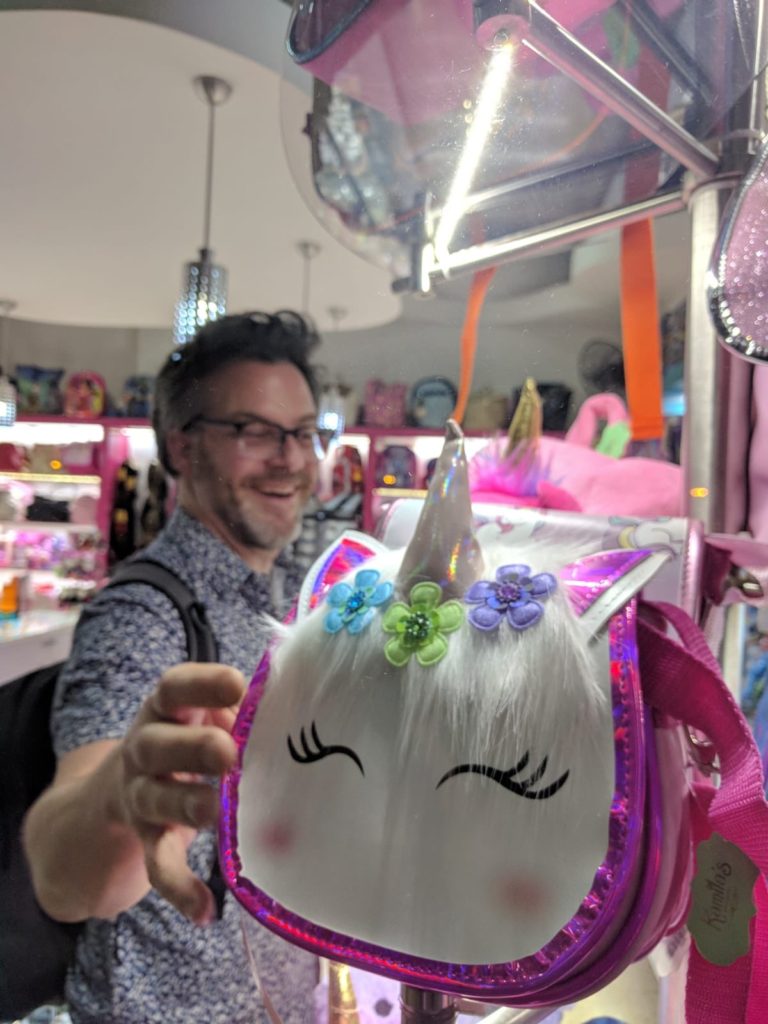Summary:
If you’ve been wondering where Chris has been, all I know is that it seems to involve a Colombian unicornGuest post by Jeff Mosenkis of Innovations for Poverty Action First, congratulations to Dave Evans, everybody’s favorite public good generator, on his upcoming move to the Center for Global Development, where he’ll join an impressive bench, including Pam Jakiela, Susannah Hares, and Kristaps Porzingis. (And subscribe to his blog at that link for great book reviews, and other interesting stuff.)Jan 30th was Fred Korematsu Day, named for the Japanese-American who fought WWII internment camps up to the Supreme Court and lost. One of my favorite podcasts, More Perfect (Radiolab about famous Supreme Court cases), did an amazing profile of Korematsu (the man and the case), and explained why
Topics:
Jeff Mosenkis (IPA) considers the following as important: cash transfers, chris blattman, Colombia, conflict, Crime, dave evans, development, Economics, health, links, miscellany, news, nutrition, podcast, podcasts, spillover effects, spillovers
This could be interesting, too:
If you’ve been wondering where Chris has been, all I know is that it seems to involve a Colombian unicornGuest post by Jeff Mosenkis of Innovations for Poverty Action First, congratulations to Dave Evans, everybody’s favorite public good generator, on his upcoming move to the Center for Global Development, where he’ll join an impressive bench, including Pam Jakiela, Susannah Hares, and Kristaps Porzingis. (And subscribe to his blog at that link for great book reviews, and other interesting stuff.)Jan 30th was Fred Korematsu Day, named for the Japanese-American who fought WWII internment camps up to the Supreme Court and lost. One of my favorite podcasts, More Perfect (Radiolab about famous Supreme Court cases), did an amazing profile of Korematsu (the man and the case), and explained why
Topics:
Jeff Mosenkis (IPA) considers the following as important: cash transfers, chris blattman, Colombia, conflict, Crime, dave evans, development, Economics, health, links, miscellany, news, nutrition, podcast, podcasts, spillover effects, spillovers
This could be interesting, too:
Lars Pålsson Syll writes Schuldenbremse bye bye
Lars Pålsson Syll writes What’s wrong with economics — a primer
Lars Pålsson Syll writes Krigskeynesianismens återkomst
Lars Pålsson Syll writes Finding Eigenvalues and Eigenvectors (student stuff)

Guest post by Jeff Mosenkis of Innovations for Poverty Action
- First, congratulations to Dave Evans, everybody’s favorite public good generator, on his upcoming move to the Center for Global Development, where he’ll join an impressive bench, including Pam Jakiela, Susannah Hares, and Kristaps Porzingis. (And subscribe to his blog at that link for great book reviews, and other interesting stuff.)
- Jan 30th was Fred Korematsu Day, named for the Japanese-American who fought WWII internment camps up to the Supreme Court and lost. One of my favorite podcasts, More Perfect (Radiolab about famous Supreme Court cases), did an amazing profile of Korematsu (the man and the case), and explained why some legal scholars still think the case was decided correctly.
- Here’s what Chris Blattman, my blog absentee landlord, is up to in political and gang research in Colombia.
- There’s been a lot of news on the proposal for a minimum income guarantee in India. According to this article (h/t Justin Sandefur) Piketty and Deaton are advising the government on it. But in a recent BBC Worldview interview, Tavneet Suri says she thinks the technical capability is largely in place, but they might want to slow down and study the actual economic effects (audio below, and links continue below that):
- A cautionary tale (h/t my IPA colleague in Burkina Faso, Aliou Baguissa Diallo) about measuring spillovers in cash transfers. In the Philippines, Filmer, Friedman, Kandpal, and Onishi found that a cash transfer targeted to the poor helped them, but raised the price of nutritious food in the area. The children of the people who got the transfers ate better themselves, but the general rates of growth stunting for everybody else, went up 11 percentage points! Mothers and children who didn’t get the cash also used less healthcare. As Berk has pointed out before, if you help a few people but potentially hurt far more, you’re doing the opposite of what you intended.
- The latest online scam targets academics, with an email purporting to be from a department chair who’s stuck in a meeting, but needs them to go out and buy a lot of gift cards, right away. Yale School of Management economists Florian Ederer and Jason Abaluck decided to see how committed the scammer was. Turns out, pretty committed:
- Rohini Pande, Vestal McIntyre and Lucy Page write in the New York Times about a paradox in aid. As big diverse countries like India and Nigeria move from low-income to middle-income, they’ll still have the greatest overall number of poor people. But development aid is scaled back as countries get richer, leaving the greatest number of poor people with the least aid. It’s sort of reminiscent of social safety net programs that cut off as soon as people earn a little part-time income, making them worse off overall.
- And to compliment last week’s Mongolian heavy metal band, here’s the Indonesian teen girls’ heavy metal band Voice of Baceport (Google them and you’ll find a lot of articles). Notice the guitar’s sound cuts out two minutes into the show and they carry on really well till it gets fixed.
